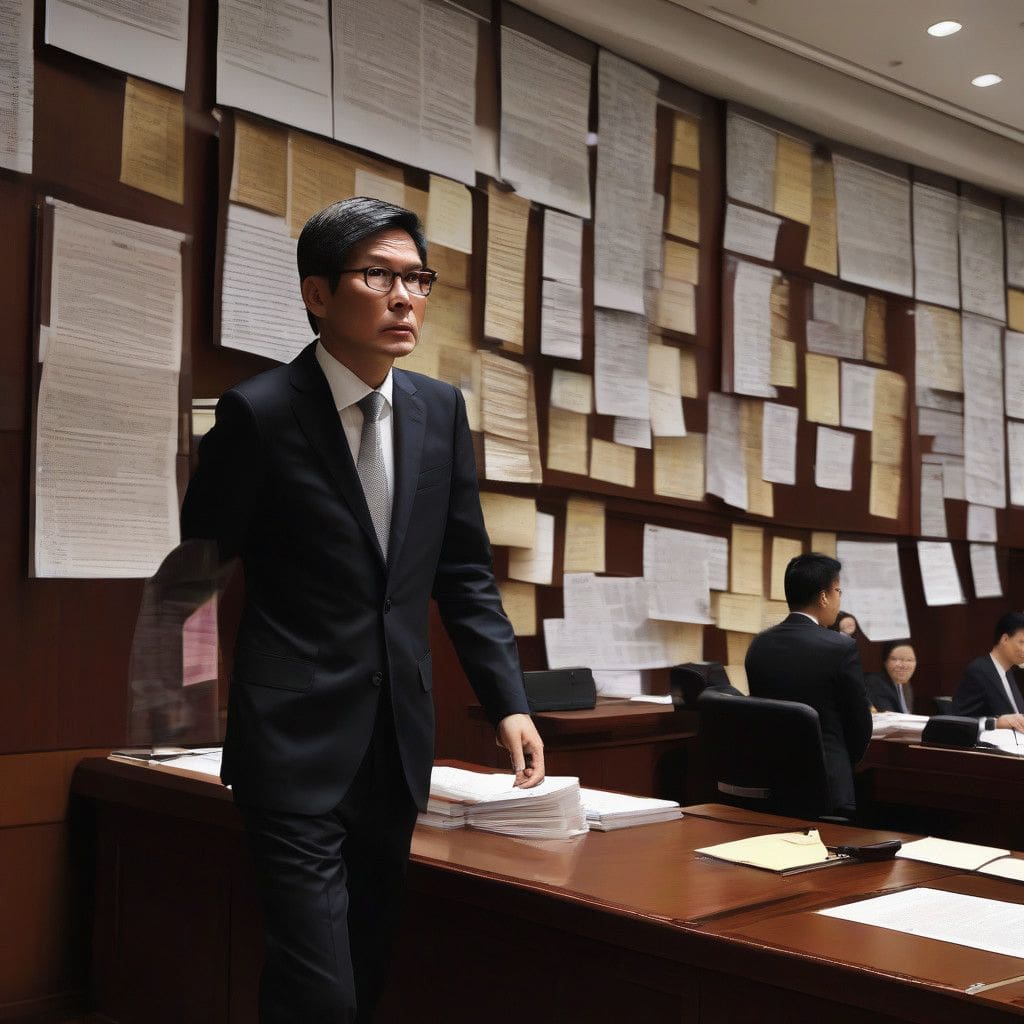In a significant development that has sent shockwaves through Singapore’s business landscape, property tycoon Ong Beng Seng has been charged in connection with a high-profile graft scandal involving an ex-government minister. This scandal has not only shaken the foundations of Singapore’s reputation for clean governance but has also prompted discussions about the broader implications for business ethics and corporate responsibilities in the region.
Ong, who is the managing director of Hotel Properties Ltd and holds a controlling stake in the British luxury brand Mulberry through his family investment vehicle, Challice, found himself in the spotlight after former transport minister S. Iswaran was sentenced to a 12-month prison term for receiving gifts as a public servant. Ong did not immediately enter a plea regarding the charges of abetment and obstruction of justice during his court appearance. His spokesperson stated that he is seeking legal advice and could not provide further details on the ongoing matter.
The charges against Ong highlight a distressing trend wherein prominent businessmen and government officials have been implicated in corruption cases, challenging the image of Singapore as a bastion of integrity in governance. Prime Minister Lawrence Wong made a robust statement following Iswaran’s sentencing, affirming that “no one is beyond scrutiny or above the law.” This strong emphasis reflects the urgency to uphold the highest standards of integrity, especially as the People’s Action Party gears up for a general election due by November 2025.
The specifics of Ong’s charges are quite revealing, as they involve alleged benefits received from the billionaire during two flights and a night’s stay at a luxury hotel in Doha, valued at S$20,848.03. Furthermore, he is accused of contributing to efforts to obstruct justice, which was part of the five charges Iswaran accepted as guilty.
Interestingly, the prosecution has indicated that it will not charge Ong related to other allegations against Iswaran, suggesting a focused approach to the ongoing investigations. Lum Kok Seng, managing director of local construction firm Lum Chang Holdings Ltd, has also been spared from related charges, as confirmed by the Attorney-General’s Chambers.
This scandal places Ong, who has an estimated fortune of $1.15 billion as reported by Bloomberg, under intense scrutiny. Known for his flamboyant presence in Singapore’s business circles, Ong is credited with bringing the Formula One Grand Prix to the city-state, a significant milestone that showcased Singapore’s growing global prominence as a luxury and business destination.
Moreover, Ong’s association with the British luxury handbag maker Mulberry adds another dimension to this unfolding story. Recently, Mulberry’s management, under the new leadership of CEO Tyler Hurst, rejected a takeover offer from Mike Ashley’s Frasers Group, reinforcing its commitment to an independent strategy. The company’s confidence in its new CEO is notable, especially against the backdrop of Ong’s legal troubles, as it aims to attract customers and investors looking for stability and reputation in leadership.
The implications of this scandal extend beyond personal reputations. Hotel Properties Ltd, which operates luxury hotels and develops high-end condos in cities like London and Singapore, is also grappling with potential impacts on its market performance. The company’s decision to continue endorsing Ong as managing director while assessing his suitability in light of ongoing legal scrutiny showcases the complex balance between business interests and ethical governance.
The fallout from this scandal raises critical questions about corporate governance and ethics, particularly in markets where business operations are closely intertwined with political relationships. The swift action from Singapore’s authorities sends a clear message that corruption will not be tolerated, but it also highlights the challenges that businesses face in maintaining public trust in the wake of such controversies.
As this case unfolds, the broader business community in Singapore watches closely, aware that the outcome may affect not only the individuals involved but also the future of corporate governance in a region that prides itself on transparency and integrity. The public’s response will likely shape expectations and practices for ethical behavior among business leaders going forward.
In conclusion, Ong Beng Seng’s legal troubles signify a turning point for Singapore’s business landscape. This case serves as a reminder of the importance of ethical practices in maintaining the integrity of both businesses and government institutions. As stakeholders look for guidance in navigating these turbulent waters, the emphasis on accountability will prove crucial in preserving Singapore’s status as a model of clean governance and ethical business operations.












